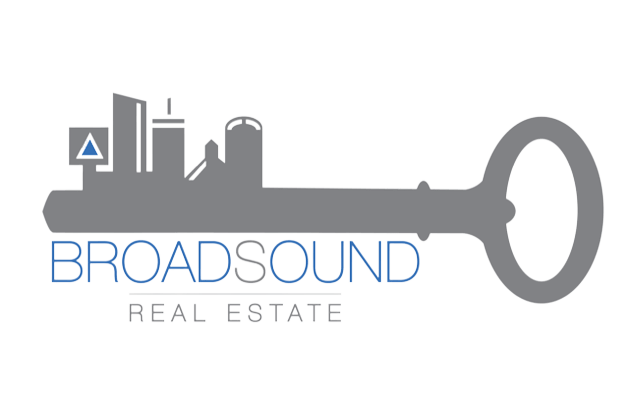Selling a house involves a lot of encountered emotions. It’s hard to know where to start, what you need to do, and how to get the best possible price for your home.
It is crucial to understand what your goals are before you start the process of selling a house. This may require some soul-searching and tough decisions. For example, you may need to declutter your home, make some repairs, or even stage it for potential buyers.
Once you have a plan, the next step is to start working on the details. This includes everything from listing your home online to negotiating with buyers. The goal is to get your home’s best price while making the process as smooth and stress-free as possible.
A house sale can be a daunting experience, but it does not have to be stressful. With some planning and preparation, you can make it through the process with your sanity intact.
We’ve compiled a comprehensive checklist for selling a house to help you stay organized. We hope it is helpful. Read on!
Professional Services
When you put your house on the market, you’ll want to make sure that it’s in tip-top shape – and that means hiring a few professional services to help you out.
It’s essential to have professional real estate agent services when selling a house. A real estate agent can help you list your home for sale, negotiate a sale price, and advise on preparing your home for sale.
Real estate agents will help you determine a fair market value for your home and list it accordingly. They also have a network of people looking to buy homes, which means they can get your house in front of the right person faster.
But not only will they help you find the buyer of your house, but real estate agents will also negotiate a sale price on your behalf and ensure you sell your house at your desired price or even better.
The best agent is not the one who tells you that your house is worth more but the one who, based on a market study, determines a price that is consistent with what you want to earn and, at the same time, is attractive to buyers.
Note: 99.99% of the properties that do not sell are because they are listed too expensive.
Besides that, your real estate agent can advise on preparing your home for sale. This can include decluttering, staging, and making necessary repairs.
Finally, they will help coordinate the sale of your home, including the transfer of ownership and the final walk-through.
By taking these steps alongside a real estate agent, you can help ensure a smooth and successful sale. Let us be your real estate agent!
[Related Article: 10 Questions You Should Ask Any Realtor When Selling Your Home]
-
Legal Services
You may need several legal services to ensure the process is seamless when you sell a house. For example, you will need to engage with a real estate attorney to help with the sale contract and ensure that all the necessary paperwork is in order.
You may also need to engage with a conveyancer to handle the transfer of the property title. Finally, you will need to ensure the property is insured until the date of sale.
-
Dumpster Rental Service
When selling a house, there are many things to consider – from showings and open houses to negotiating with buyers. One thing often overlooked is the need for a professional dumpster rental service.
While you may be able to put some items in the trash or donate them to charity, there’s a good chance you’ll end up with some unnecessary junk.
Dumpster rental companies will drop off a dumpster at your house and pick it up after you finish, making it easy to get rid of all the junk you don’t need anymore. This can be a huge relief when you’re trying to sell your house, and it’s one less thing to consider.
Also, when negotiating the property, it is good to consider the issue of garbage to avoid problems. By making everything clear, the process becomes smooth and without setbacks.
-
Local Home inspector
A Local home inspector can help you identify any potential issues that could make your home difficult to sell and give you a report that you can provide to potential buyers.
Home inspection services can vary in cost, so get multiple quotes before choosing an inspector.
-
Repair and Renovation
If you’re selling your house, you’ll want to ensure it’s in top condition before putting it on the market. That means repairing any damage and making any necessary renovations that will directly impact the value of your house. Depending on the condition of your home, this could be a minor or significant undertaking.
You’ll need to hire professional repair and renovation services if you’re not handy yourself. This can be costly, but getting top dollar for your home is worth it. Plus, potential buyers will be impressed by a home in move-in condition.
So, what kind of repairs and renovations might you need to do before selling your house? Here are a few examples:
- Fix any leaks, including in the roof, plumbing, or windows.
- Repair any damage, such as holes in the walls or cracked tiles.
- Replace old or outdated fixtures like doorknobs, light fixtures, or cabinet hardware.
- Paint the inside and outside of the house.
- Refinish or replace the flooring.
- Update the kitchen or bathroom with new countertops, appliances, or fixtures.
Of course, this is just a general list. The repairs and renovations you need will depend on your home’s condition. But by taking care of these things, you’ll be able to sell your house quickly and for the best possible price.
The best repairs are those that give you a greater return on investment. In general, fixing up the kitchen, bathrooms and painting can have a greater impact on the price of the house. It’s important to think about the return and make a budget based on the client’s capacity.
[Related Article: What Not to Fix When Selling a House?]
Pre-listing preparations
When you’re selling your home, there are several things you can do to prepare for a successful listing process.
First, it’s vital to get your home in tip-top shape. As mentioned earlier, this means decluttering, deep cleaning, and making necessary repairs.
Then, you’ll want to stage your home to make it as appealing as possible to buyers. This may involve hiring a professional stager or rearranging your furniture and decor to highlight your home’s best features.
Finally, you’ll want to take care of any paperwork and get your home’s marketing materials in order. This includes professional photos, a property description, and a list of features and amenities. By taking care of these things in advance, you can make the listing process go smoothly and increase your chances of getting top dollar for your home.
The following home sale checklist will ensure you’ve covered everything, from deep-cleaning to decluttering to repairs and staging.
Checklist for Selling a Home:
-
Start with a deep clean:
This means scrubbing every nook and cranny, inside and out. If you have time and energy, do it yourself. If not, hire a professional cleaning service.
-
Declutter your home:
This means getting rid of any personal items and any excess furniture or knick-knacks. You want potential buyers to be able to see themselves in your home, and that’s difficult to do if your home is crammed full of your stuff.
-
Choose the right real estate agent:
When selling your home, you’ll want to work with an experienced real estate agent who knows your local market well and guide you through the other points in this checklist.
-
Make any necessary repairs:
This could be anything from fixing a leaky faucet to repairing damage from a previous leak. If anything needs to be fixed, do it before you list your home.
-
Stage your home:
This makes it look as inviting and attractive as possible. This could involve anything from rearranging furniture to adding some fresh flowers.
-
Know your home’s value:
Have a professional real estate agent do a comparative market analysis to determine what your home is worth.
-
Determine your listing price:
Once you know your home’s value, you can start thinking about what you want it to cost. Keep in mind that your listing price should be based on recent comparable sales in your area and any repairs or upgrades you’ve made to your home.
-
Get your paperwork in order:
Before listing your home, you’ll need to gather some necessary paperwork, including your mortgage information, property tax records, and a home inspection report.
-
Know your bottom line:
It’s important to have a realistic idea of what you want to get for your home. Work with your real estate agent to determine a competitive asking price, but be prepared to negotiate.
-
Start marketing your home:
Once you’re all set, it’s time to start marketing your home to potential buyers. This can be done through online listings, open houses, and word-of-mouth. Your real estate agent will help you do this!
-
Be prepared for showings:
Once your house is on the market, you should be prepared for potential buyers to come and see it. This means keeping the house clean and tidy and being flexible with showings.
Listing and marketing
When selling a house, the listing and marketing process can be critical to achieving a successful sale.
A well-executed listing and marketing campaign can help you sell your home quickly and for a fair price. Keep in mind this checklist with your real estate agent:
- Obtain the listing agreement from your real estate agent.
- Decide on the asking price for the home.
- Disclose any known material defects in the house on the seller’s disclosure form.
- Consider doing a prelim (preliminary title report) to avoid title problems and maximize your marketing.
- Participate in staging consultations and complete post-appointment activities (repairs, painting, decluttering) as soon as possible.
- Your real estate agent may ask you to fill out listing-related forms. It may be necessary for you to fill out client intake paperwork and describe the features of the property during this process.
- Prepare your home for professional photography and follow the recommendations from your agent.
- Plan the photo shoot of the house.
- Verify the accuracy of MLS listings provided by your agent.
- Place a sign advertising the sale of the property in the yard.
- Obtain warranties and manuals related to the home.
- Provide additional marketing opportunities by hosting open houses.
- Analyze the offers that arrived and select the best one.
- Seal the deal!
Closing Process
The real estate agent will help you facilitate the sale and manage the process from start to finish. Once the house goes under contract with a buyer, there are a few key steps that sellers will need to take to close the sale.
First, the seller will need to sign the contract and any other necessary paperwork. This is typically done with the help of their real estate agent. Once the paperwork is complete, the buyer will need to obtain financing. In most cases, the buyer must get a mortgage from a bank or other lending institution. The seller will need to provide the buyer with a good-faith estimate of the closing costs.
The last step in the process is to close the property. This is typically done at a title company or attorney’s office. The seller will need to provide the buyer with a deed to the property. The buyer will then sign all of the necessary paperwork and pay the closing costs. Once this is done, the property will officially be transferred to the new owner.
Documents and paperwork
The home-buying process is rife with paperwork and documentation. Buyers and sellers must be prepared with all the necessary documents to streamline the process and avoid delays. Some key documents buyers will need to provide include a pre-approval letter from a lender, a purchase agreement, proof of funds, and identification. Additionally, buyers should be prepared to provide any other documents that the seller or their agent may request. By being organized and prepared, buyers can make the home-buying process much smoother and less stressful.
The seller also will need to provide several documents during the home sale process, including proof of ownership, proof of insurance, and proof of any liens or encumbrances on the property. They will also need to complete a sales contract and other necessary paperwork. The buyer must provide proof of financing, a deposit, and other required documents.
In some cases, the seller may also be required to provide a disclosure statement outlining any known defects or problems with the property. Other documents that may be involved in the sale of a house include a mortgage commitment letter, homeowners insurance policy, and more. These documents help to protect both the buyer and the seller in the transaction.
Lastly,
This home-selling checklist reflects the general process for selling a house with the help of a real estate agent. You’ll be liable for most steps if you intend to sell your home independently.
When working with an agent, you will have help marketing your home, negotiating with buyers, and managing the sales process.
Let us represent you as your real estate agent when you sell your house. We’d make this process seamless for you.
Schedule your free consultation by clicking here or calling us anytime at (617)729-2967.















![eBook How to Increase Home Value [7 Simple Ways]](https://realestatejuanc.com/wp-content/uploads/2022/03/FORMAS-WAYS-TO-INCREASE-YOUR-HOME-VALUE.png)